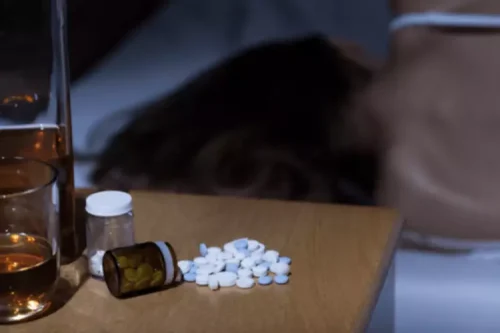What Are The Most Addictive Drugs?: The Top 10 List

Compared to other drugs, cannabis is often perceived as less harmful, but its potential for addiction should not be overlooked. Responsible use and understanding the risks are crucial in preventing dependency. While Nutt’s research team found that heroin, cocaine, nicotine, methadone and barbiturates carried the highest risk for dependence, other substances also showed high dependency rates. Misusing this class of drugs can lead to severe health problems, including addiction and overdose. Signs of barbiturate overdose include clammy skin, dilated pupils, shallow breathing and coma. Individuals experience an intense rush of euphoria and energy after using cocaine.
Opioids, Cocaine, Cannabis, and Other Illicit Drugs

Long-term cocaine use can result in tolerance, dependence, and a range of adverse physical and mental health effects. Alcohol works as a depressant, affecting the central nervous system and altering mood and behavior. Over time, regular alcohol consumption may lead to physical dependence, characterized by tolerance and withdrawal symptoms. Negative effects of prolonged alcohol consumption include physical health issues like liver damage, as well as psychological problems such as depression and anxiety.
Levels of Care
However, due to their potential for tolerance, dependence, and withdrawal symptoms, especially with prolonged use, the prescription and use of benzodiazepines require careful medical supervision. When drug use becomes repetitive, this can cause significant changes in how the brain processes information. The addictive nature of drugs is often intensified by the euphoria they induce during use and the discomfort amphetamine addiction treatment experienced when the effects wear off. Sustained drug abuse can lead to the development of physical dependency, characterized by withdrawal symptoms and cravings in the absence of the addictive substance.
Stress During Pregnancy Linked To Higher Risk Of Epilepsy In Children

Some individuals may turn to alcohol to self-medicate for severe pain, further complicating their addiction. Healing from alcohol addiction often requires professional intervention, such as individual therapy and support groups, to address both the emotional and physical aspects of dependency. Addiction can cause its victims to hurt their loved ones, suffer financial losses, and develop serious health problems, among other issues. This illicit opioid is the most addictive drug in the world due to the way this substance alters brain chemicals and triggers addiction both physically and psychologically.
- A large driver of this has been a steep rise in opioid deaths over the last decade.
- Nicotine keeps people using tobacco products, even when they want to stop.
- In summary, addiction consistently finds roots in stressful contexts, particularly when prolonged throughout early childhood.
- Although many individuals use cannabis for its medicinal properties and recreational enjoyment, the psychoactive component of THC has the potential to elicit dependence when used frequently.
Always consult with healthcare professionals for accurate information about substances and their potential risks. In addition to the potential for addiction, the effects of cannabis can vary significantly based on the strain, method of consumption, and individual biology. For instance, some strains have higher levels of CBD, a compound known for its therapeutic benefits without inciting =https://ecosoberhouse.com/ a feeling of being high. This variability can influence not only the experience of the user but also the likelihood of developing dependency. For decades, researchers have ranked the most addictive drugs in the world.

- For those seeking addiction treatment for themselves or a loved one, all phone calls are confidential and are available for 24/7 help.
- It is highly addictive due to its rapid onset and short-lived effects, leading individuals to seek repeated doses.
- Research conducted by Nutt and his team revealed that heroin, stimulants, depressants, nicotine products and street methadone had the highest potential for abuse and addiction.
Alcohol misuse may cause alcohol-induced blackouts, resulting in memory gaps that temporarily block the transfer of memories from short-term to long-term storage. Having a team of medical professionals available 24/7 can help ensure a safe and successful detox process for anyone battling addiction. Once the root of the behavior is addressed, it’s easier for the person to change that behavior.

- Negative effects of prolonged alcohol consumption include physical health issues like liver damage, as well as psychological problems such as depression and anxiety.
- As you struggle with addiction, you may find that your employment opportunities dwindle, resulting in financial instability.
- Most people consume caffeine daily, relying on its stimulating effects to enhance alertness and focus.
- The drug alters the brain’s reward system, making users believe they need the drug to feel normal.
- In 2020, almost 75% of all overdose deaths involved an opioid, according to the Centers for Disease Control and Prevention (CDC), with the majority of those involving fentanyl or similar synthetic opioids.
If one plans to initiate treatment, a joint plan involving the patient’s input yields better results. most addictive drug ArylcyclohexylaminesThis is a family of dissociative substances that includes phencyclidine (PCP), ketamine, and many “research chemical” dissociatives like 3-MeO-PCP and MXE. DeliriantsThis category of drugs is characterized by inducing delirium, as opposed to most hallucinogenic and psychedelic drugs, which often produce more lucid states of consciousness. Examples include certain antihistamines in high doses (like Diphenhydramine and Dimenhydrinate) and plants of the Datura genus. Dextromethorphan (DXM)This is an over-the-counter cough suppressant that can produce a high at high doses.
